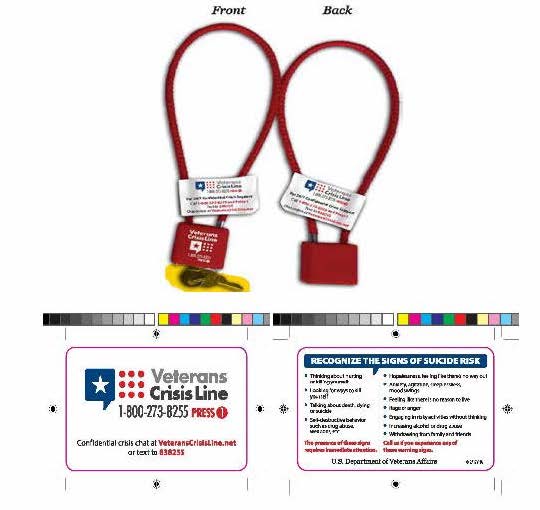Has your federal contract recently been terminated for convenience? If so, proceed with an understanding of your rights; because if not, you may end up leaving money on the table.
When a contract issued by a federal agency is terminated for convenience, a contractor is entitled to receive compensation to fairly and equitably compensate it for this termination by submitting a settlement proposal within one year. While the principles underlying terminations for convenience unfortunately don’t permit contractors to realize disappointed expectations (i.e., you can’t recover the profit you expected to receive for the part of the contract you didn’t perform), the flexibility written into the applicable regulations (FAR Part 49) may allow you to receive costs you might not have considered.
Under a termination for convenience, a government contractor is entitled to recover its reasonable, allocable, and allowable costs, including costs related to suspensions of work. See Alfair Dev. Co., ASBCA Nos. 53119, 53120, 05-2 BCA P 32,990 at 163,511. The use of business judgment, as distinguished from strict accounting principles, is the heart of a settlement. See Codex Corp. v. United States, 226 Ct. Cl. 693 (1981).
Accordingly, when seeking costs due to a termination for convenience via a settlement proposal, a strong narrative with supporting documentation is key. Make sure you’re outlining your costs in detail (i.e., what these costs were, when they were incurred, to what they were attributed). For each cost, you’ll need to show the following:
Reasonableness – A cost is reasonable if, in its nature and amount, it does not exceed what a prudent person would incur in the conduct of a competitive business. 48 CFR 31.201-3(a). For example, labor costs would be reasonable if they were consistent with market rates.
Allocability – A cost is allocable to the contract if it was incurred for purposes of contract performance.
Allowable – The cost must not be something specifically disallowed by the FAR. For instance, a terminated government contractor may recover as settlement expenses accounting, legal, clerical, and similar costs reasonably necessary for preparation and negotiation of its termination settlement proposal. See FAR 31.205-42(g)(2). After all, these costs are a consequence of the termination.
Meet generally accepted accounting principles – This one is self-explanatory.
You’re also entitled to receive profit on the work performed before the termination, but that’s a whole other topic.
Every termination has its own set of facts, but a hypothetical example may help in showing the nuts and bolts of a solid termination for convenience settlement proposal.
Let’s say you have a firm-fixed-priced contract for grounds maintenance work. The contract was supposed to have one base year and several option years, but it was cancelled a few months in. You purchased equipment, hired and trained employees, and engaged in several weeks of mobilization before beginning billable performance.
As an initial matter, when a contract is terminated for convenience, the first step is to STOP performance. In writing, immediately notify your subcontractors and employees of the termination; and then begin doing what you can to mitigate ongoing costs.
In this instance, you’ll find that some costs necessarily continue on after termination. For instance, what if you have an office lease that doesn’t expire for some time? Have employees currently staying at an Airbnb with a strict cancellation policy? Have purchased equipment for the job? These are costs that bleed into post-termination; and if you carefully document these and why they are unavoidable, you should be able to recover them. For instance, in one termination settlement proposal I prepared, we received the full amount of the remaining monies to be paid under a lease because not only did the term not expire for several additional months; but it was unlikely and/or not feasible to sublet the space.
In our hypothetical example of the grounds maintenance contract, if you had equipment you cannot allocate elsewhere and is not returnable, you would claim the cost of that equipment. Keeping in mind that the exercise of a termination for convenience settlement is fairness, you might seek all the cost or a portion of the cost, depending on the circumstances. You simply need to set forth the facts to support your position. If your contracting officer disagrees or needs more information, you respond accordingly.
And what about mobilization costs that haven’t yet been absorbed? For instance, you may have allocated senior personnel to attend site meetings for planning purposes, or trained new employees. Mobilization can include a myriad of costs you had absorbed in your pricing that was consequently not realized by CLINS billed under your contract. If you can show that, substantiating these costs and explaining how they played into your pricing, you may be able to recover not only those costs, but also a reasonable profit on that work.
It’s worth mentioning that to a degree, the experience of negotiating a termination for convenience settlement proposal depends on your contracting officer, and your relationship with your contracting officer. They have some discretion in negotiating what is fair under the circumstances, which is why it’s so important that you prepare a proposal which shows that what you’re asking for is “fair.” Along with completing the necessary forms, include a solid narrative describing your costs (and how they meet the criteria cited above) and provide all substantiation.
If you’re a government contractor, you know the drill. In seeking costs due to a termination for convenience, be as clear and as detailed as possible. Make your proposal easy for them to review. Don’t settle for less than your work, or costs, were worth!

*Questions about termination for convenience settlement proposals? Sarah Reida, who works almost exclusively with veteran-owned small firms participating in the federal marketplace, may be contacted at scs@legalmeetspractical.com or (703) 552-3220.




